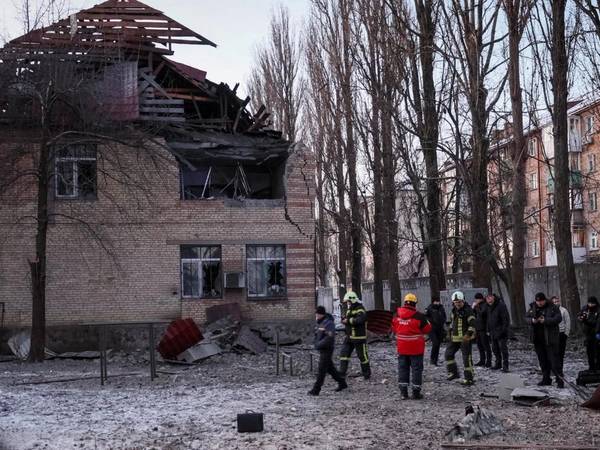Dozens of US lawmakers have written to President Joe Biden to express concerns about reports that Iranian-made drones recovered in Ukraine contain parts manufactured in the United States.
In addition to President Biden, the letter was also addressed to Secretary of State Antony Blinken, Treasury Secretary Janet Yellen, and Secretary of Commerce Gina Raimondo and was signed by about 60 members of the US House of Representatives.
The letter is in line with earlier efforts by Western countries seeking to restrict the Islamic Republic’s access to parts used in building drones that Russia uses to attack Ukraine.
Voicing their deep concern, the lawmakers urge the Biden administration “to develop a coordinated, whole-of-government approach to interrupt Iran’s supply chains, shut down shell companies used by adversaries to evade sanctions, and pressure allies to crack down on unscrupulous distributors in Europe and Asia.”
They also called for “a timely briefing on any progress that has been made and plans going forward” about Washington’s efforts to curb the supply of drone parts.
“Iran has provided hundreds of drones to Russia since August 2022. The Shahed-136 and Shahed-131, one-way attack unmanned aerial vehicles also known as “suicide drones,” have terrorized Ukrainian civilians since their introduction into the conflict. Iran has also delivered to Russia the Mohajer-6, a surveillance drone capable of conducting precision air-to-ground strikes,” the letter read.
Conflict Armament Research investigations revealed that processors built by Dallas-based technology company Texas Instruments as well as engines made by Austrian firm owned by Canada’s Bombardier Recreational Products have been used in the drones.
Many parts are considered dual-use components and relatively easy to buy, without any approval needed.
The representatives referred to the report by Conflict Armament Research that studied more than 500 components from Iranian-made drones and unexploded precision-guided munitions that were recovered in Ukraine, determining that “82 percent of their parts were manufactured by companies based in the United States.” Ukrainian intelligence services have estimated that 75 percent of the components of Iranian-made drones deployed in the conflict are US-made.
The signatories also mentioned the punitive measures taken by the Office of Foreign Assets Control on firms involved in the production and delivery of Iranian drones to Russia, describing the sanctions as “a small but promising first step in what must become a concentrated, sustained effort.”
“Just as the United States and its international allies rallied to implement a comprehensive sanctions regime to combat Iran’s ballistic missile program, it must do the same to degrade the regime’s precision-strike capabilities,” they urged.
They said Tehran’s fleet of drones have far-reaching implications beyond the war against Ukraine as such weapons “provide Iran and its proxies with yet another tool to project power in the region, threatening our troops, key allies, and freedom of navigation.”
Stressing the necessity of immediate action, they said the US should move not only to disrupt Iran’s burgeoning relationship with Russia, but also to blunt Iran’s ability to undermine international law, project power across the Middle East, and threaten US servicemembers.
Since December, Biden has launched a task force – comprised of different departments including Justice, Treasury, Defense, Commerce and State are involved in the task force -- to see how US and western components are ending up in Iranian drones.
In January, the Quebec-based company Bombardier Recreational Products (BRP), best known for water-skis and snowmobiles, passed to the Canadian government its internal report on how its engines ended up in Iranian-made drones used by Russia in Ukraine. The BRP said it has established through a “thorough investigation” that an engine found in a downed Mohajer-6 drone had not been sold directly to either Iran or Russia. Bombardier ended supplies of the engines to Iran in 2019, although the Mahtabal company in Tehran still markets itself as official representative for Rotax engines.
Earlier in the day, the adviser to Iran’s minister of intelligence claimed that 90 countries are "customers" of Iranian drones, and China is in the "queue" to receive 15,000 of these drones. The Wall Street Journal recently reported that an Iranian delegation has travelled to Russia to build a factory capable of producing six thousand UAVs designed by Tehran to be used in the war against Ukraine.
